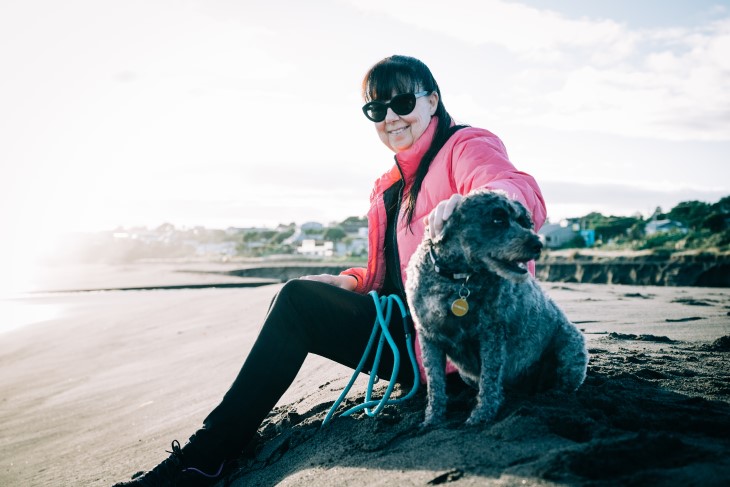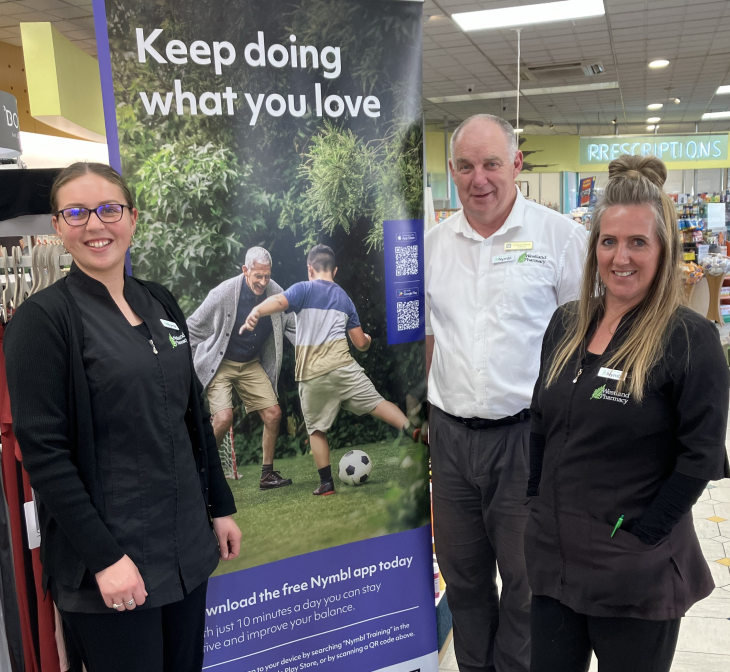Rehabilitation pathway helping older people bounce back in Waikato
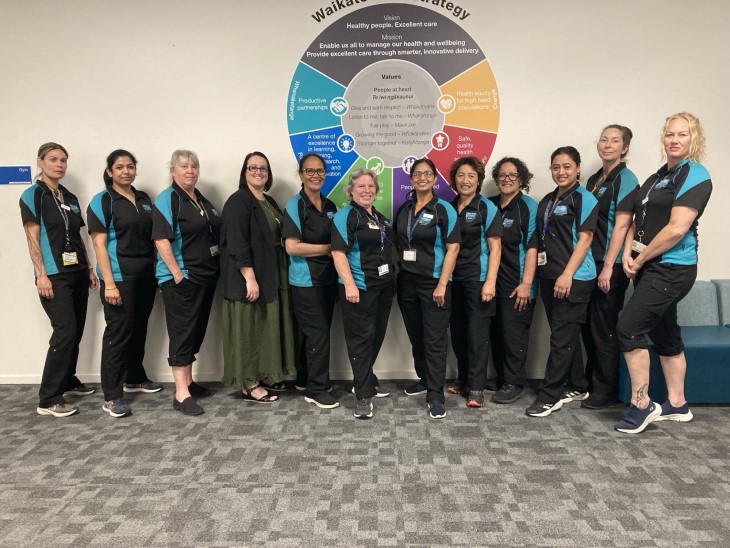
People in Waikato are being well supported in their rehabilitation and freeing up hospital beds at the same time, thanks to the successful START programme – a precursor to the national introduction of ACC’s Non-Acute Rehabilitation Pathway (NARP).
Picture yourself at over 65 – entering your twilight years but still fit and sprightly enough to enjoy an active, fulfilling life.
You’re outside gardening one day and suffer a nasty fall, leaving you with serious injuries and fearing for your future.
Will you regain your strength and balance to get back on your feet? How long will that take? Do you have enough support to help you return to independence?
All those thoughts are racing through your head as you’re being discharged from hospital.
But then a kind nurse tells you a healthcare professional will be there to meet you at home within two hours.
They’ll make sure you have everything you need and are all set up for your first night back at home – including sorting out your medications, making sure you have enough food in the fridge and even drawing the curtains for you.
That level of support will then continue for up to six weeks, with someone visiting you three times a day to make sure everything is going well in your recovery.
It’s like having your very own hospital ward at home.
Does that sound too good to be true? Not if you live in the Waikato, and many other parts of the motu.
Waikato is among those leading the way when it comes to supporting an older person in their recovery, helping them regain their confidence and return to independence as soon as possible.
Getting back on your feet with START
At the heart of Waikato’s successful rehabilitation pathway is the Supported Transfer and Accelerated Rehabilitation Team (START).
START is focused on supporting patients to make a safe and faster transition from hospital to home. It provides the intensive support and rehabilitation some patients need, but in their home rather than through a longer stay in hospital.
“All the care planning is done by registered nurses and allied health,” says Raewyn Dean, now Operations Manager of Rehabilitation and Support in Waikato but previously responsible for running START as charge nurse manager for over ten years.
“The difference from being in hospital is that it’s the healthcare assistants or support workers who deliver the majority of the care.”
Empowering healthcare assistants to provide that support frees up experienced clinicians to deliver care where it’s urgently needed back at the hospital.
Melody Mitchell, Operations Director for Medicine and Older Person’s Rehabilitation in Waikato, believes this is a major strength of START.
“A lot of it is basic support, like reminding people about their medications, making sure they’re eating properly or taking them through their rehab programmes. So we don’t need to have lots of skilled clinicians going out there to provide expert support,” she says.
“That’s the key that makes START successful and I’m hugely proud of that team – it’s all about their commitment to doing fundamental cares and doing them very well.”
The success of the seven-days-a-week service has seen it grow to three bases (at Thames, Hamilton and Cambridge) which cover the whole Waikato area.
START is demonstrating an effective ‘supported discharge’ model and is working so well it’s even being noticed overseas.
“The World Health Organisation is keen on collaborating with us around the work we’ve been doing on the rehabilitation journey,” says Matthew Parsons, a professor in aging who works with Waikato University and Te Whatu Ora (Health New Zealand).
“We’ve also heard from the Irish government, they’ve now added our service into their health and disability remit.”
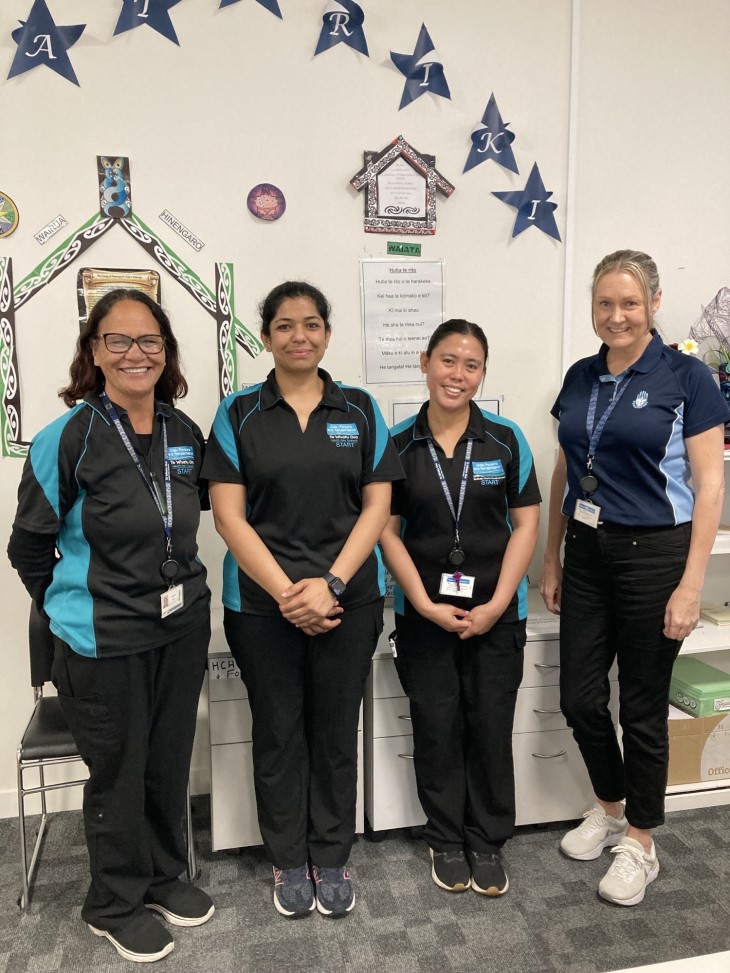
START Hamilton team members, from left, Rebecca Derby, Imee Iso, Preeti Preeti and Penny Barclay.
Adapting NARP for the needs of each region
START is how Waikato delivers ACC’s NARP service, which stands for Non-Acute Rehabilitation Pathway.
The purpose of NARP is to return ACC clients who’ve suffered an injury to independence, preferably their pre-injury levels of function.
It supports best practice rehabilitation by acknowledging that an inpatient setting (hospital) is not always the best option for clients, instead providing the opportunity for rehabilitation within the community setting and at home.
Flexible funding is provided by ACC to the Te Whatu Ora districts (previously district health boards) to deliver NARP, based on the needs of their patients and what works best in their district.
Improved outcomes and less hospital time
The benefits of START (and the wider NARP programme) for the injured older person are clear – to feel well supported in their rehabilitation and get back to leading an independent life.
But NARP also brings many benefits outside of that.
“It’s made us very slick in terms of our discharge process,” Raewyn explains.
“We’re able to discharge patients about six days earlier than we otherwise would, thus freeing up hospital beds. We have up to 147 patients at any one time in START, about 30 per cent of those are on ACC and the others are non-ACC or stroke patients.
“If you think about what that 147 actually looks like, it would be about five hospital wards of people who are instead recovering at home in the community.”
Matthew’s research suggests a patient can recover much quicker and more comfortably at home.
“The evidence is very strong around community-based rehabilitation, particularly for older people, and we’ve seen it’s made a dramatic difference in our district,” he says.
“The home is the optimum place for people and their whānau. It’s easier for family to visit them and they can be more engaged.
“If you’re frail it’s best not to be in a hospital bed, your risk of deteriorating is significantly higher because we do a very good job of spreading diseases and colds in hospitals.
“The sooner someone can go home the better. Increasing capacities in hospitals by reducing the length of stays is also a bonus.
“So, basically, we’ve got improved outcomes, less time in hospital, less bureaucracy, and more efficient, more affordable services.”
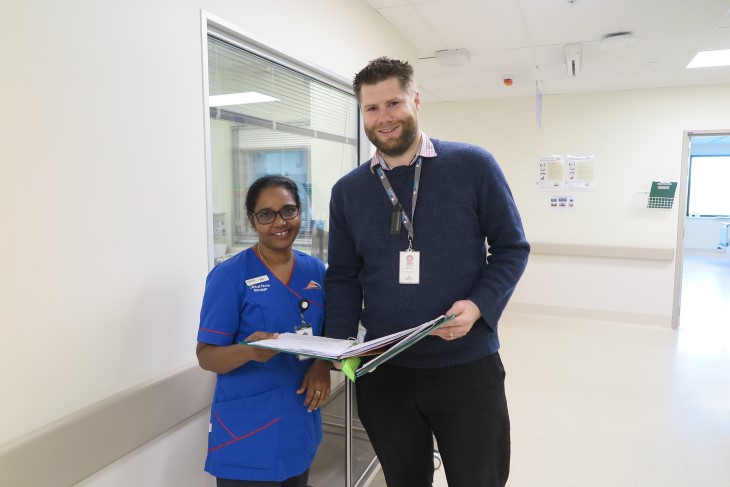
Nathan Clarricoats, Team Lead START Lakes, and Clinical Nurse Manager Simi George.
‘Start with one seed and grow from there’
Waikato has been working closely with neighbouring Lakes, Tairāwhiti Gisborne and Taranaki to help roll out the NARP programme in those districts, with resourcing proving the main barrier to overcome.
“The other districts have stood theirs up quickly and the service has been quite successful for them,” Raewyn says.
“Without additional resource, some have pulled in resources from other services. But, to truly get the full impact, you do need to deliver a seven-days-a-week service.”
With the Waikato now having been running START for 14 years, Melody believes some districts may have doubts about their ability to deliver the programme as successfully, without that same level of experience and resources behind them.
“A key thing we’ve tried to do with START is just forget about the funding models and focus on the patient. We want the older person and their whānau to receive the highest-quality care, irrespective of where the funding is coming from,” she says.
“When people have come to visit us from other districts, you can see there’s a desire to do this programme but there’s often a feeling you need all this huge resource Waikato has developed over the years.
“But just starting off with one little seed and growing from there is the key bit. It’s all about the willingness to just give something a go.”




